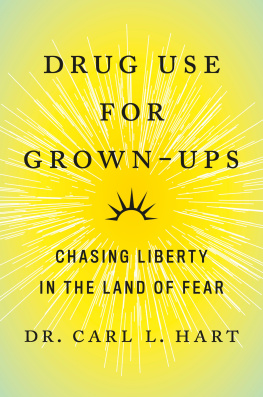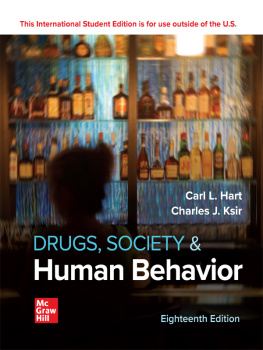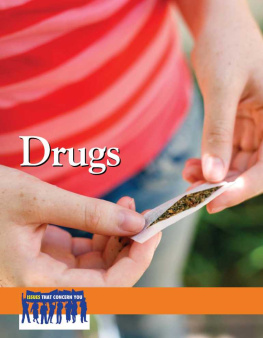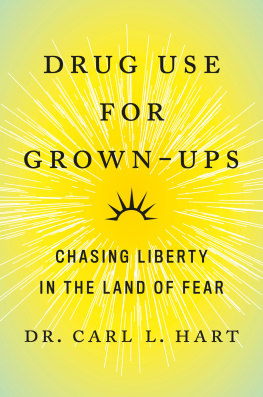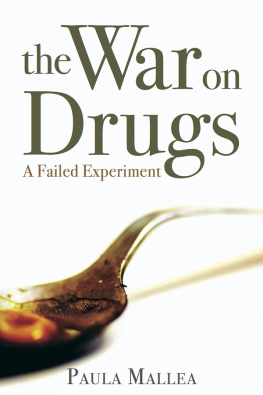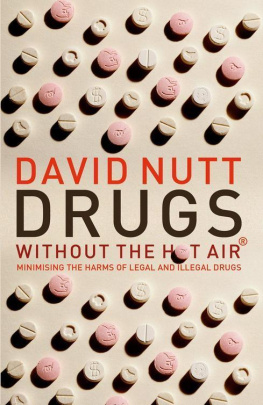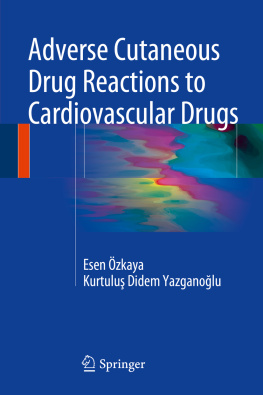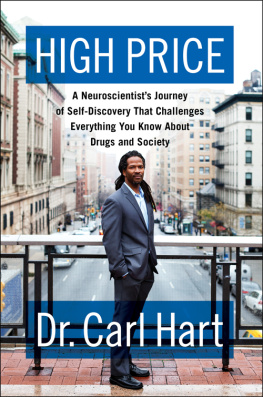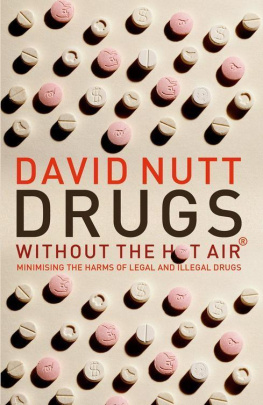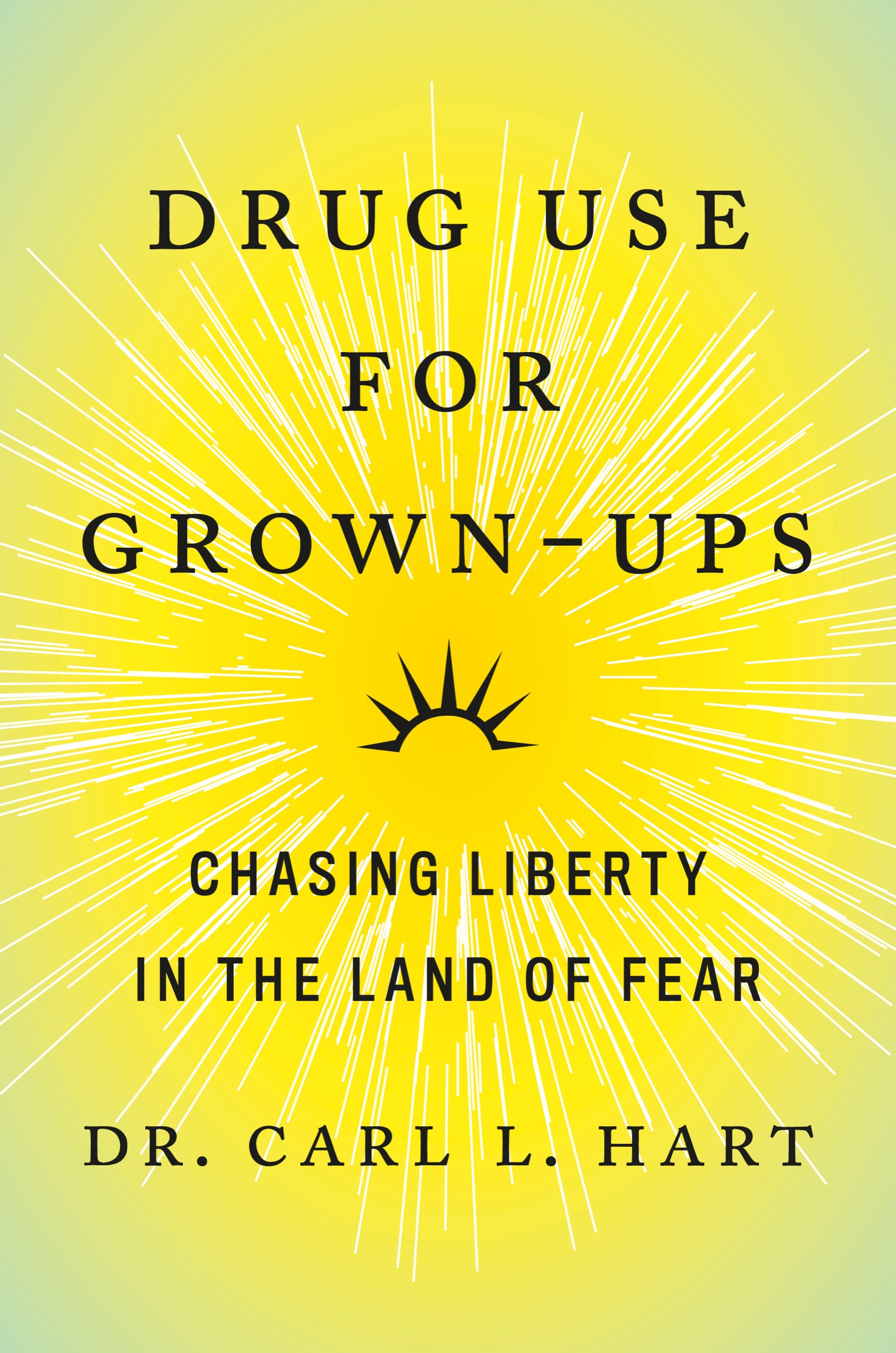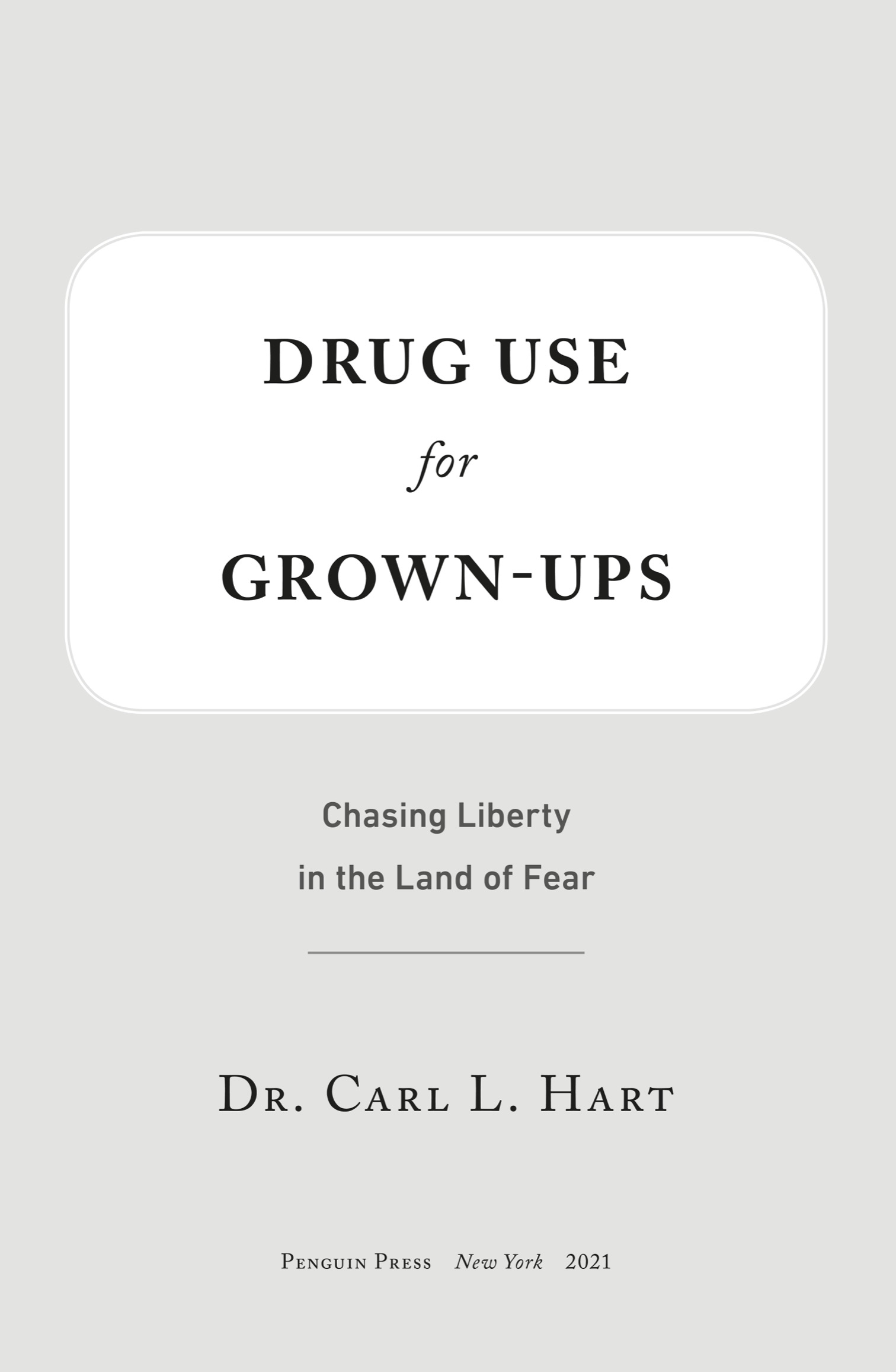This is not a book promoting drug use, nor is it a how to book. Today, more than thirty million Americans report using an illegal drug on a regular basis. Drugs dont need an advocate.
I wrote this book to present a more realistic image of the typical drug user: a responsible professional who happens to use drugs in his pursuit of happiness. Also, I wanted to remind the public that no benevolent government should forbid autonomous adults from altering their consciousness, as long as it does not infringe on the rights of others.
I use personal anecdotes and scientific research, my own and others, to dispel drug myths and to illustrate the many potential benefits of responsible drug use. I also share stories that involve other individuals, including relatives and friends. Names and locations have been changed in an effort to protect them from negative repercussions.
After reading this book, I hope you will be less likely to vilify individuals merely because they use drugs. That thinking has led to an incalculable number of deaths and an enormous amount of suffering. I hope you will come away with an appreciation for the prodigious potential good derived from drug use and a deeper understanding of why so many responsible grown-ups engage in this behavior.
PROLOGUE
Time to Grow Up
If people let government decide which foods they eat and medicines they take, their bodies will soon be in as sorry a state as are the souls of those who live under tyranny.
Thomas Jefferson
I am an unapologetic drug user. I take drugs as part of my pursuit of happiness, and they work. I am a happier and better person because of them. I am also a scientist and a professor of psychology specializing in neuroscience at Columbia University, known for my work on drug abuse and addiction. It has taken me more than two decades to come out of the closet about my personal drug use. Simply put, I have been a coward.
The philosopher John Locke once noted that pursuing happiness is the foundation of liberty. This idea is at the core of the Declaration of Independence, the document that gave birth to our nation. The Declaration asserts that each of us is endowed with certain unalienable Rights, including Life, Liberty and the pursuit of Happiness, and that governments are created for the purpose of protecting these rights. The use of drugs in the pursuit of happiness, in my view, is arguably an act that the government is obliged to safeguard.
Why is our government arresting hundreds of thousands of Americans each year for using drugs, for pursuing pleasure, for seeking happiness? The short answer is that its a very long story. The long answer is the book you are reading. Americas drug regime is a monstrous, incoherent mess.
TO GRASP HOW we got here and what we can do about it, Id like to start by telling you something about my life and work as a drug abuse scientist. In the fall of 1999, I landed my dream job, as an assistant professor and researcher at Columbia Universitys College of Physicians and Surgeons. My research involved giving thousands of doses of drugs, including crack cocaine, marijuana, and methamphetamine, to a range of people in order to study the effects. I believed my work contributed to our understanding of drug addiction. I would be awarded multimillion-dollar grants from the National Institute on Drug Abuse (NIDA) to conduct this research, and I would be invited to serve on some of the most prestigious committees in the area of neuropsychopharmacology. It was a thrilling time.
Twenty years latertwenty years Ive spent studying the interactions among the brain, drugs, and behavior and observing how moralizing about drug use is expressed in social policymy initial excitement has given way to skepticism, cynicism, and disillusionment. When I was a naive graduate student, I believed that I was doing Gods work by telling people to stay away from drugs. I believed that the poverty and crime that plagued my childhood community were a direct result of drug use and addiction. I now know that telling people to avoid drugs is no more godly than the Church prohibiting my Catholic wife from using birth control, but it is just as paternalistic, a way of restricting ones freedom and autonomy.
What about the notion that drugs led to poverty and crime in my neighborhood? Well, that is simply an ugly fantasy, an incredibly effective one to be sure. Its effective not only because it is still believed by large segments of the American public but also because it seemingly provides a simple solution to complicated problems faced by poor and desperate people. Many other complex factors are responsible for the turmoil seen in the places of my youth and other communities. But it took me a long time to see that clearly myself. I was too busy for too long being a soldier in the regime, caught up in the cause of proving how dangerous drug use is.
I HAD THE COOLEST job in the world. I got people high on a daily basis.
I instructed the twenty-five-year-old white man to light the marijuana cigarette, which was to be smoked through a hollow plastic cigarette holder so that the contents were not visible. He inhaled for five seconds, then held the smoke in his lungs for another ten seconds before exhaling. He repeated this two more times, with a forty-second interval between each puff. We called this our paced-puffing procedure. We used it to standardize, to the best of our ability, the amount of drug inhaled.
Although I couldnt know for sure whether he was getting placebo or active THC, the major psychoactive ingredient in marijuana, I could tell from his glassy red eyes and the serene smile on his boyish flushed face that he really enjoyed what he had gotten. Nodding slowly and with more bass in his voice than usual, he said, Yeah, thats it. I could also tell that he was an experienced smoker; it took him only three puffs to suck down nearly three-fourths of the 1 g cigarette. Marijuana smoke now filled the small sterile room.

